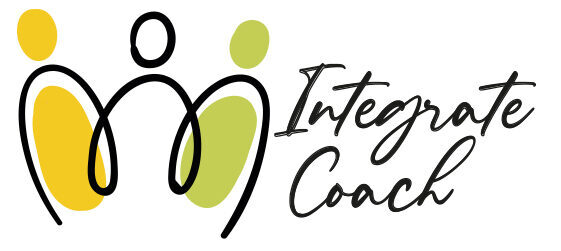How to Effectively Manage and Reduce Stress: Expert Tips
The Stress factor is a big deal in today’s world for many individuals, corporates, organisations etc. It is visible in work ethics, commitments and communications. Stress levels are dangerously high and until something can be done about it, effectiveness will be at a minimum. Can we be stree-free or is it a myth? Is there anything as having an aspiration to be stress free, something that can be controlled? How wonderful would it be for a race that has brought stress upon ourselves, now to seek out noble and effective ways to remedy it.
Nothing is beyond the reach of mankind, with its advancements in every field, the opportunity to explore the externals and examine the internals. We must look deeper and find ways in which we can deal with stress and its dangers. What is stress is the first question one must be able to answer prior to finding resolves to overcome it. Not all stress is bad, some embolden to take decisive actions that ultimately proves beneficial. However, the stress I would like to focus on is that which is risky.
What is Stress?:
It is the body’s natural response to situations that are challenging. These can be physical, emotional or psychological. Stress can be an outcome of nature or nurture. Nature, in the sense what happens to you as you grow up in your early life. These factors are quite instrumental in your response to stress. Nurture could be factored in with the minute yet mighty powers of our genes. Although, this is not to be considered as permanent. Stress can be dealt with and if successful can promote an overall wellness.
When faced with stress our immediated response is one of ‘fight or flight’, and to counterbalance this is our vagus nerve comes into play: the seat that brings about relaxation. Our bodies have an inbuilt system of dealing with stress and we must make the best use of it.
In the article Stress and Your Health Bruce McEwen, Robert Sapolsky1 state that when we deal with stress:
“the stress response causes the body to release several stress hormones (e.g., cortisol and adrenaline) into the bloodstream. These hormones intensify your concentration, ability to react, and strength. Also, your heart rate and blood pressure increase, and your immune system and memory are sharper. After you have dealt with the short-term stress, your body returns to normal.
Chronic or long-term stress, however, poses a problem. If you repeatedly face challenges and your body is constantly producing higher levels of hormones, it doesn’t have time to recover. Stress hormones build up in the blood and, over time, can cause serious health problems.”

Outlined below are several steps to tackle the stress factor and to bring your life back on track. Remember that the while the stress battle might be real, there is great power within you to take back control of your life an truly live a victorious life.
Understanding Stress: The First Step to Conquering It
Before diving into effective stress management techniques, it’s important to understand the nature of stress itself. Stress is the body’s response to demanding or challenging situations. While it can be a natural and necessary response, chronic stress can have detrimental effects on both our physical and mental health.
Recognizing the Signs of Stress
Stress can manifest itself in various ways, and it’s crucial to identify the signs and symptoms to address the issue promptly. Common physical symptoms of stress include headaches, fatigue, muscle tension, and sleep disturbances. On an emotional level, stress can lead to irritability, anxiety, mood swings, and difficulty concentrating.
Prioritizing Self-Care: Your Key to Stress Relief
When stress becomes overwhelming, self-care should be your top priority. Taking care of your physical, mental, and emotional well-being is essential for managing stress effectively. Here are some expert-recommended self-care practices to incorporate into your routine:
- Physical Exercise: Engaging in regular physical activity not only benefits your physical health but also has a profound impact on your stress levels. Aim for at least 30 minutes of moderate exercise, such as brisk walking each day.
- Healthy Eating: Nourishing your body with a well-balanced diet plays a crucial role in stress management. Incorporate plenty of fruits, vegetables, whole grains, and lean proteins into your meals. Avoid excessive caffeine and sugar, as they can exacerbate stress.
- Quality Sleep: Establishing a consistent sleep routine is vital for stress reduction. Aim for 7-8 hours of quality sleep each night2. Create a calming bedtime routine and ensure your sleeping environment is comfortable and conducive to restful sleep.
- Time Management: Learning effective time management skills can help alleviate stress caused by overwhelming workloads. Prioritize tasks, set realistic goals, and delegate responsibilities when possible. Break larger tasks into smaller, more manageable steps3.

Building Resilience: Strengthening Your Stress Coping Mechanisms
In addition to self-care practices, building resilience can empower you to navigate stress more effectively. Resilience is the ability to adapt and bounce back from challenging situations. Here are some strategies to enhance your resilience:
- Cultivate a Supportive Network: Surround yourself with a strong support system of family, friends, or colleagues who can provide encouragement and assistance during stressful times. Seek their guidance and lean on them when needed.
- Positive Thinking: Foster a positive mindset by challenging negative thoughts and reframing them into more positive and constructive perspectives. Practice gratitude and focus on the good in your life.
- Journaling: This is a great way to not only check your progress but also to create a mindset of putting into to writing an actionable plan. Journaling keeps a pace that you would love following and one that can open up new opportunities for new experiences.
- Stress-Relieving Techniques: Explore various stress-relieving techniques such as deep breathing exercises, progressive muscle relaxation, or engaging in hobbies and activities you enjoy. Find what works best for you and make it a regular part of your routine.
- Seek Professional Help: If stress becomes unmanageable or starts affecting your daily life, don’t hesitate to seek professional help. A qualified therapist or counselor can provide valuable guidance and support tailored to your specific needs.

Creating a Stress-Free Environment
Beyond personal practices, it’s essential to create a stress-free environment that promotes relaxation and well-being. Consider the following tips to foster a calming atmosphere:
- Declutter and Organize: A cluttered space can contribute to feelings of overwhelm and stress. Take time to declutter your living and working areas, creating a clean and organized environment that promotes focus and tranquility.
- Incorporate Relaxation Techniques: Introduce calming elements into your environment, such as soothing scents, soft lighting, and calming music. Consider incorporating relaxation techniques like aromatherapy, candlelight baths, or nature sounds to enhance relaxation.
- Establish Boundaries: Set clear boundaries with work and personal commitments to ensure a healthy work-life balance. Learn to say no when necessary and prioritize activities that bring you joy and relaxation.
Taking Action for a Stress-Free Life
By implementing these expert tips into your daily routine, you’ll be well on your way to managing and reducing stress effectively. Remember, stress is a part of life, but it doesn’t have to overpower you. Take charge of your well-being, prioritize self-care, and seek support when needed.
Conclusions:
Stress is not new found. It has been around from the time of our early ancestors and has showed up in different ways with different names. The Stress Factor however, does not need to be debilitating. It can be an opportunity to recognize and an outlet to overcome both the ills and benefits it provides. To live a stress free life is to recognize that stress is real, and allow enough personal and professional space to follow key steps. This can create a life that is worth living and one that can impart true freedom.
1The Journal of Clinical Endocrinology & Metabolism, Volume 91, Issue 2, 1 February 2006, Page E2, https://doi.org/10.1210/jcem.91.2.9994
Published:01 February 2006; accessed 25 May, 2023.
2(2023) . [] Avaliable at: https://www.sportskeeda.com/stories/supercharge-your-immunity-7-effective-ways-to-boost-it-naturally/ (Accessed: 25 May, 2023).
3(2023) . [] Avaliable at: https://www.sportskeeda.com/stories/supercharge-your-immunity-7-effective-ways-to-boost-it-naturally/ (Accessed: 25 May, 2023).


